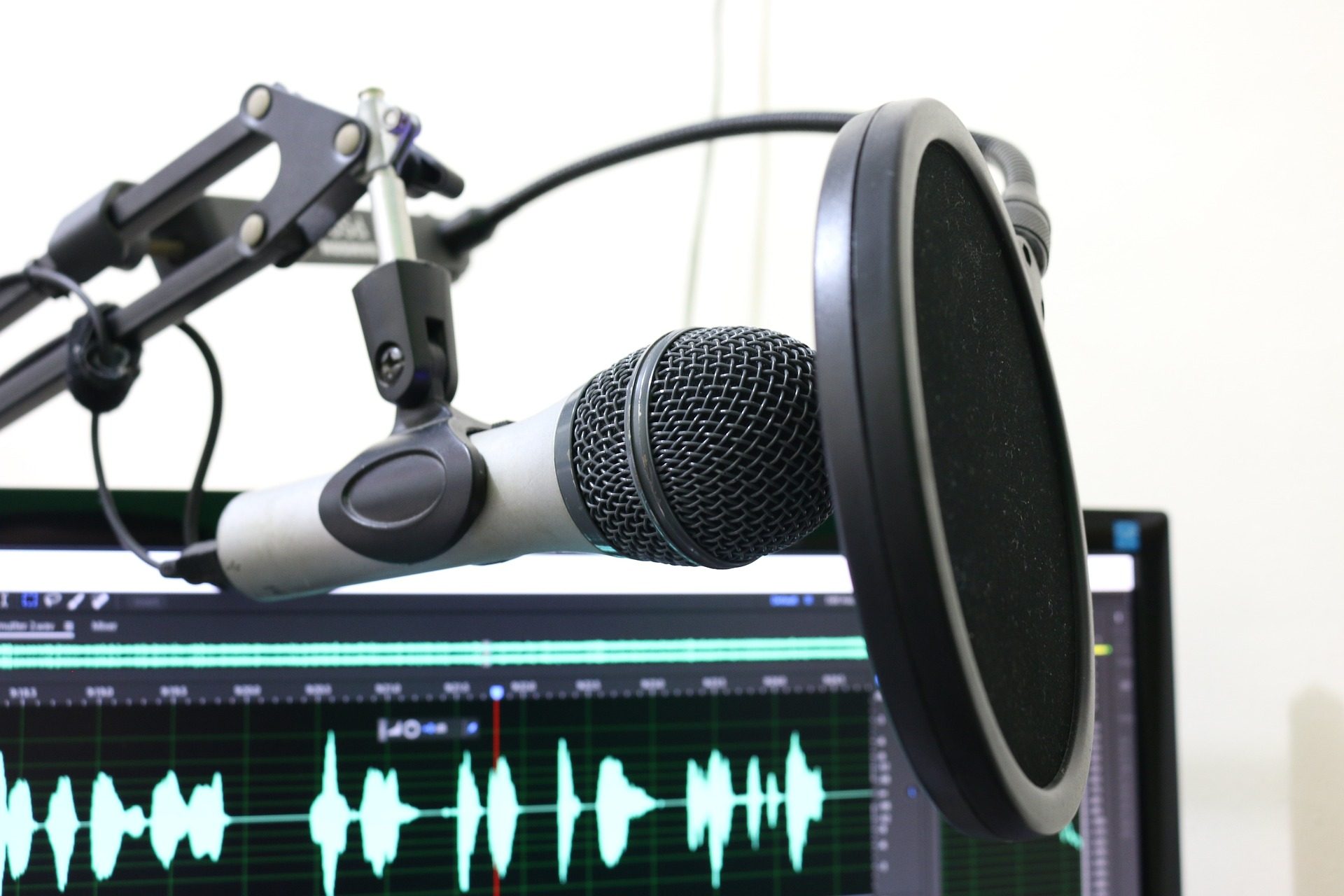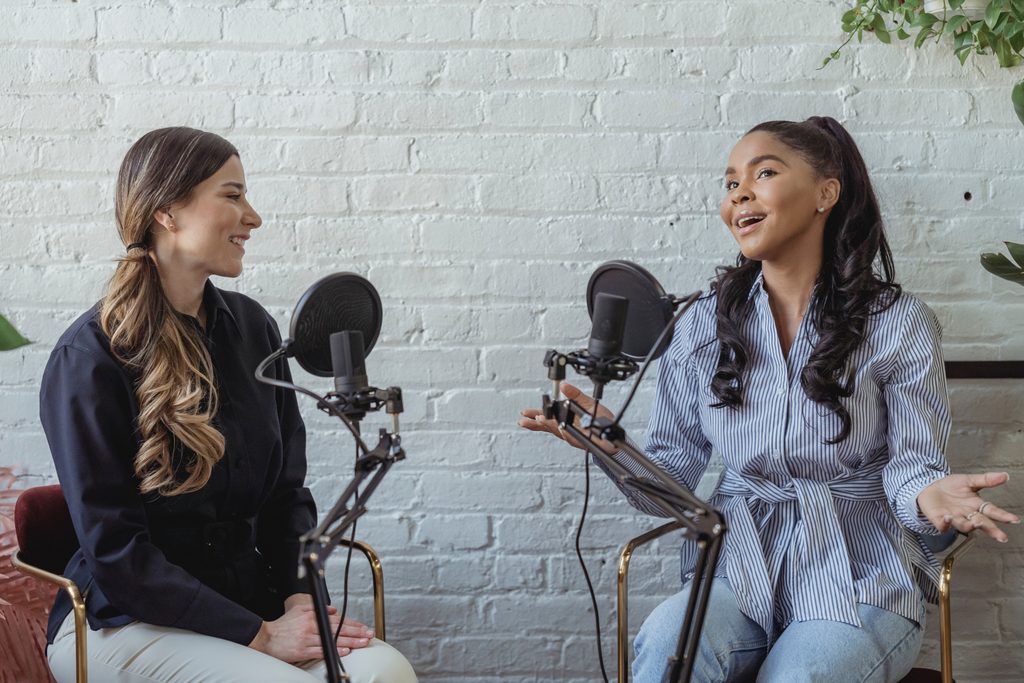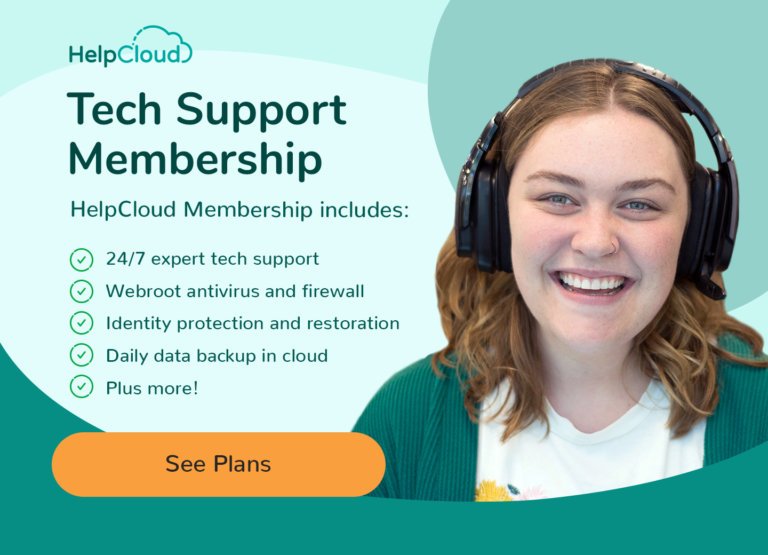Whether you want to start a podcast for fun or to promote your business, you will need to know some key steps to take. Many of our readers are seniors, and there isn't any reason why you shouldn't be starting one if you so desire. This blog post is meant to explain some main things you need to consider when starting a podcast.
If you're a HelpCloud member and want to get tech advice from our Comptia A+ certified technicians, we are at the ready to give you the info you need in order to grab the right equipment and get it installed.
How Podcasting Works
Whether you're a product-based business owner or just looking for ways to reach more audiences, podcasting is a great way to expand your reach and build a community.
However, you must have the right connections to get noticed.
And you need to find a topic you're passionate about. It doesn't have to be anything specific, but it should be something that you'll enjoy.
Then you need to record the conversation. You can use a free audio recorder software. Once you're done recording, you can then upload the file to a hosting site.
When you have finished recording, you'll need to edit the recording in post-production and stitch the individual audio files together to create a complete podcast.
How To Plan Your Podcast
Planning your podcast will give you the structure you need to make a successful show, and it will help you stay focused.
You have to decide on a topic that will engage your audience. Think about the demographics of your listeners and the topics they're interested in.
Also consider your goals for your podcast. Is it to educate, entertain, or teach? If you're unsure, you may need to do some research. This could include reading news, conducting interviews, or even surfing the web.
Next, you need to decide on a podcast format. Some podcasters plan out a season's worth of episodes, while others will simply plan out one episode at a time.
Whatever you choose, make sure you have a catchy title and tagline. This helps establish your brand identity and will encourage listeners to subscribe.
You may also need to research how to do things in your podcast. For example, you can create a list of the most important points in a story, and how to engage your audience.
How To Create a Podcast Brand

Creating a podcast brand is a key component to building a successful podcast.
The right podcast branding strategy can turn listeners into long-term fans. A strong brand can also boost your reputation and improve brand recall.
However, it takes a lot of work and dedication to create a podcast that will stand the test of time.
Establish Your Mission
The first step to creating a podcast brand is to establish a mission for the show. The mission should be specific, clear, and encompass all the values of the show. It should also contain the core objectives for the podcast and the target audience.
Define Your Brand
After establishing a podcast mission, the next step is to define your brand. You'll want to choose your color scheme, fonts, and other visuals to represent the look and feel of your show.
Consider Hiring A Brand Expert
While you're building your podcast brand, you may consider hiring a branding expert to help you with your graphics. Having a logo and a branded set of fonts and images will make it easier to share your content and remind people who you are.
How To Choose The Right Recording Software
Choosing the right recording software for podcasting is a difficult task. You need to consider a number of factors to find the best software for your needs.
The first thing you should look for in podcast recording software is ease of use. It should be able to store your audio files locally. You may also want to check whether it has editing features.
If you're just starting out, you might be more comfortable with a simple, free tool like Audacity. It's an open-source podcasting and audio editing program that is available for both Mac and Windows. It's also a great choice for importing existing recordings.
A full-fledged digital audio workstation (DAW) is another option. It's perfect for recording podcasts because it offers a variety of professional editing tools.
Adobe Audition is also a popular recording and audio editing software. It can record, edit, and mix audio and video. It also includes a range of non-destructive effects, such as reverb, echo, and noise reduction.
How To Choose Your Equipment
You can start with a cheaper rig or go all out with advanced tools. You can build your setup to suit your needs, but remember to keep your costs in check.
You’ll Need Headphones
Getting a good set of headphones is a must for any podcaster. They allow you to hear what's going on during your show and to monitor the quality of your sound.
Investing in a quality pair of headphones will help you record a better podcast and prevent you from making silly mistakes.
Choose the Right Lighting
Having the right lighting is also key. Podcasters should opt for a simple ring light, but they should also think about a lighting kit.
An affordable lighting kit can make a huge difference in a dark room. Even if you don’t intend to record a video of the podcast, the right lighting can help put any guests you might interview at ease and this will make the podcast feel more natural and conversational.
You’ll Need An Audio Mixer
One piece of equipment that's essential for live audio recordings is an audio mixer. A mixer is an electronic device that combines multiple audio channels into a single analog signal. It is useful for recording live music and other multi-channel sounds.
This means songs, sound-effects or background music can fit seamlessly into your podcast which will do wonders for the production quality of your final recording.
How To Choose Your Audience For Podcast
You don't want to waste time with an audience that doesn't fit your message. Identifying your target audience is a key step in getting your podcast off the ground.
Use Social Media
One way to find your ideal audience is to start a conversation with people who have similar interests to you. Use social media to make connections. You can post your podcasts to your Facebook page, Twitter account, or even LinkedIn.
You can also ask questions in forums related to your topic. This will direct people to your podcast and, more importantly, these will be people with an established interest in your topic so they are more likely to become regular listeners.
Consistency Really Is Key
The most important element of any podcast is consistency. The sweet spot is to release at least one episode per week, but it’s up to you as long as you make a concerted effort to stick to a regular posting routine.
A good way to do this is to set a schedule. You can schedule a new episode every day, every other day, or once a month. This will help you build a community and increase the chances of your audience staying tuned in.
Create a Survey
You can find out what your ideal audience wants with the help of a survey. You can use Google Forms or Survey Monkey to collect the data.
Conclusion
Whether you want to become a thought leader, promote a new product or build a community, podcasting is a great way to do it.
People like to feel informed and to gain insight into complicated issues.
It also builds a bond with your audience and provides them with an opportunity to find solutions to their problems.
You may want to start with a short episode, then increase the length as your audience grows.
All this being said, there are infinite things to work on to produce the so-called “perfect podcast”.
Don’t let perfectionism stop you from starting. The main thing is just to take the plunge and start releasing regularly. You will improve as you go.

